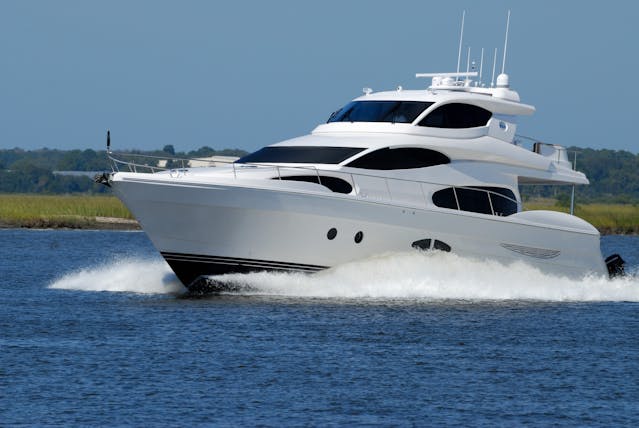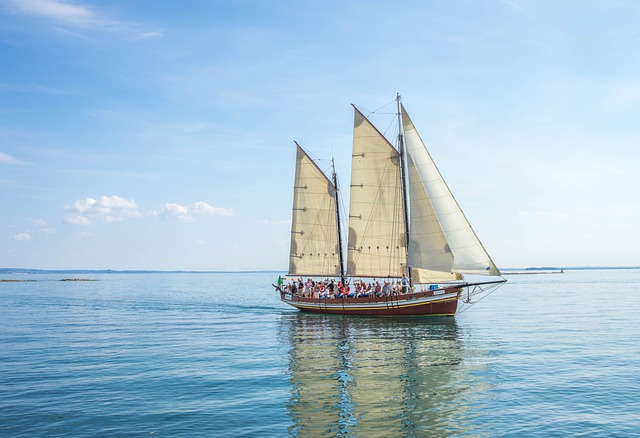In the heartland of Arkansas, an intricate matrix of boating laws weave a safety net over the water’s surface. These regulations pulsate with importance through every corner of the state’s aquatic endeavors, their scope sprawling from vessel operational licensing to boating education standards and even tackling issues such as maritime intoxication.
The obligation to adhere echoes for each soul that traverses these waters in any craft imaginable, whether they be residents or transient visitors. The size and type of your vessel matter not; compliance is non-negotiable across all walks.
These laws are more than mere words on paper – they’re living entities nurtured by the vigilant guardians at Arkansas’ Marine Police Division. This dedicated team holds the reins tight on this dynamic regulatory beast, ensuring lawfulness and safe practices echo across their watery domain.
Far from being static policy monoliths, these rules thrive in a constant state of flux. Regular updates ripple through them like waves — reacting to new safety measures or evolving needs. The implication? Every seafarer must keep their ear close to ground (or rather sea), staying abreast with current directives lest they find themselves adrift in a sea of non-compliance.
Decoding the Vessel Operation Laws
Navigating through the intricate labyrinth of maritime law can be a truly formidable task. In Arkansas, the imperative for understanding these legal requirements is accentuated by the boating license requisites. At the core of these provisions lies an intricate web of mandates, stitched together with an aim to maintain superior safety standards and uphold professionalism in navigating waterways.
When one delves deeper into Arkansas’s boating license norms, they find that individuals born post-January 1, 1986 are obligated to successfully complete a state-authorized boating education course before they can take charge of either a motorboat or sailboat. These prerequisites are not merely checkboxes to be ticked but reflect Arkansan commitment towards fostering responsible boating practices and mitigating waterborne accidents. The state envisions these stipulations as integral threads weaving together the tapestry of their aquatic community — highlighting their profound regard for such laws.
Safety Measures for Boaters in the State

Marine buffs, in their quest for aquatic escapades, must not overlook the necessity of grasping and conforming to safety guidelines. It is a key element that guarantees both pleasure and protection during nautical outings. The state regulation unmistakably articulates that the age limit for obtaining an Arkansas boating license is 16 years- a stipulation with significant implications on safety preservation within the state’s aquatic territories.
Nonetheless, age isn’t the sole determinant of security; it demands supplementary requirements. Compliance with specific measures – donning life jackets, abstaining from maneuvering boats under drug or alcohol influence, and adhering to speed restrictions – are mandated by the state to assure a secure yachting experience.
Moreover, it’s paramount for sailors to assimilate particular safety protocols applicable to their distinctive vessel type. To illustrate this point: What’s expected from an operator of personal watercraft (PWC) might be different than what’s required from one who helms larger crafts such as yachts. Henceforth acquiring an Arkansas boating license necessitates thorough comprehension about these varied protocols ensuring all marine enthusiasts regardless of age are aptly prepared to steer responsibly through Arkansan waters.
In essence, the safety measures for boaters in Arkansas can be summarized as follows:
- Adherence to the minimum age requirement: The state regulation stipulates that one must be at least 16 years old to obtain a boating license. This is a crucial measure aimed at ensuring only individuals with requisite maturity and judgment are permitted to operate boats.
- Compliance with equipment requirements: All boaters are required to wear life jackets while on board. Additionally, boats should be equipped with other necessary safety gear such as fire extinguishers, navigation lights, and distress signal devices.
- Sobriety while operating vessels: Boaters are strictly prohibited from operating any watercraft under the influence of drugs or alcohol. This rule is enforced rigorously by marine law enforcement agencies within the state.
- Observance of speed limits: Speed restrictions apply in certain areas and during specific times. These limitations are meant to ensure safe navigation especially in crowded or environmentally sensitive waters.
- Knowledge about vessel-specific protocols: Different types of watercraft may have distinctive operational procedures and safety protocols. For instance, personal watercraft (PWC) operators might need additional training compared to those driving larger crafts like yachts.
The above guidelines underscore the importance of responsible behavior when engaging in aquatic activities within Arkansan waters. It’s worth noting that non-compliance could lead not just to legal repercussions but also compromise personal safety along with others’. Therefore it’s incumbent upon every aspiring sailor or established mariner alike, irrespective of their age or experience level, to fully comprehend these regulations before setting sail.
Regulatory Measures for Underage Boaters
The intricate web of laws enveloping underage boating is both unyielding and vital in safeguarding individuals, property, and the environment. Within this labyrinth of legislation, each State unfurls its bespoke guidelines for such practices. A recurrent query echoes through the legal corridors: Is a boating license necessary in Arkansas when you fall under the age threshold? In unequivocal terms, yes.
Indeed, all navigators birthed after January 1st of 1986 – whether they helm a motorboat or sailboat within Arkansas’ watery bounds – are obliged to undertake either an approved State mariner education course or an equivalent examination. This obligation remains firm irrespective of their chronological age.
One must not overlook that the age limit set by the state’s maritime commission doesn’t spring from arbitrary whimsy. Rather it’s grounded on exhaustive research and consensus derived from voluminous data archives chronicling boat usage and safety records. Moreover, any young seafarer below 16 years propelling a motorboat or PWC with ten horsepower plus must have adult company – someone at least 18 years old who either holds a valid license or enjoys exemption therefrom.
This dictum issued by the custodians at The Arkansas Game & Fish Commission aims to ensure steadfast adherence to safe navigation protocols thus fortifying everyone’s welfare aboard these vessels.
State’s Requirements for Boating Education
The unblemished aquatic expanses of Arkansas, pulsating with a dynamic boating culture, adhere to an exclusive blueprint for the educational prerequisites needed for legal and safe navigation. An edict established by the state necessitates boating education for those helmsmen born on or after the onset of 1986. It’s not merely a dictate, but rather an endeavour to instil both safety and accountability among mariners; thereby fortifying a secure environment for all who embark upon these waters.
The educational curriculum encapsulates pivotal areas such as laws pertaining to vessel operation, application of essential equipment required in Arkansas’ boats, rudimentary tips on navigation along with strategies aimed at curtailing water contamination. The course can be pursued via various mediums – in person, through digital platforms or procuring study material designed for home-based learning. Consequently, it drives mariners to arm themselves not just with requisite knowledge but also tools indispensable in adeptly managing any unforeseen predicaments that may surface while out on open waterways.
Laws for Personal Watercraft in the State
In the realm of personal watercraft activities, compliance with state regulations not only reflects legal duty but also champions a key component to ensure safety for oneself and others whilst traversing aquatic territories. A deep comprehension of these laws is indeed paramount as they form the foundational structure that governs orderliness on our waters – dictating who has the authority to control specific water vessels, determining operational timings, setting speed limits, prescribing necessary vessel equipment and delineating proper navigation procedures.
State legislation often necessitates that operators of personal watercraft meet an age threshold and possess a valid boating safety certificate or license. Any carelessness in adhering to these stipulations could result in punitive measures which might culminate into hefty financial penalties or incarceration or both. Hence it is prudent to consult local marine enforcement bodies in order to procure detailed guidelines pertaining to personal watercraft operations.
Such knowledge acquisition will not merely contribute towards maintaining lawfulness but will also aid you significantly in making sound decisions when navigating through waters thus leading towards an overall safer boating experience.
State’s Regulations for Boating Under Influence
Navigating a craft whilst under the sway of alcohol or narcotics, far from being merely perilous, is unequivocally illicit. The rules established serve to diminish mishaps fostered by impaired cognition and sluggish reflex responses that are the offspring of imbibing alcohol or ingesting drugs. These laws emphasize, mirroring their vehicular counterparts, the prohibition of piloting a marine vessel in an inebriated state.
Officers enforcing law and order bear authority to initiate on-the-spot sobriety assessments if they harbor suspicions about a navigator’s state of intoxication. The penalties for contravening these regulations oscillate between monetary fines to incarceration, and often encompass suspending or rescinding boating privileges as well. Moreover, certain states have initiated implementation of “implied consent” laws pertaining to sailors – implying you tacitly assent to undergo a sobriety evaluation simply through your participation in boat operation.
FAQs
Operating a watercraft in this state is subject to certain fundamental regulations that revolve around safety and legality. These encompass maintaining speeds within prescribed limits, exhibiting appropriate navigational lights and signals, adhering to established maritime right-of-way rules, and crucially, ensuring sobriety while at helm.
The legal framework concerning boating under intoxication is decidedly firm in our state. It categorically prohibits piloting any boat whilst affected by alcohol or narcotic substances or anything else that impairs cognitive function. Transgressors could face stiff financial penalties, revocation of their boating rights or even incarceration.
Indeed it does. State authorities recommend an array of safeguards for those venturing out on local waters. These include employing life-saving jackets, having functioning communication devices onboard at all times along with routine vessel upkeep coupled with possession of essential safety apparatus such as fire quenchers and medical kits.
Yes indeed! Younger seafarers have additional restrictions placed upon them which might limit their operational scope pertaining to different categories of watercrafts; it may necessitate adult supervision at all times along with obligatory maritime education/certification requirements.
The requirement laid down by our administration necessitates every prospective sailor undergo a comprehensive course on nautical sciences including navigation techniques, handling boats safely amongst other critical procedures before they can obtain official certification permitting them to set sail.
Certainly! Our laws do contain explicit provisions governing personal aquatic vehicles like jet skis. These could encompass regulations pertaining to the age of operators, restrictions on engine power and even mandates for carrying certain safety gear onboard.
Absolutely! The province enforces stringent penalties against those found guilty of boating whilst intoxicated. Such violations can culminate into hefty fines, confinement, suspension of navigation rights and possibly enforced enrolment in an educational program focused on substance abuse.



